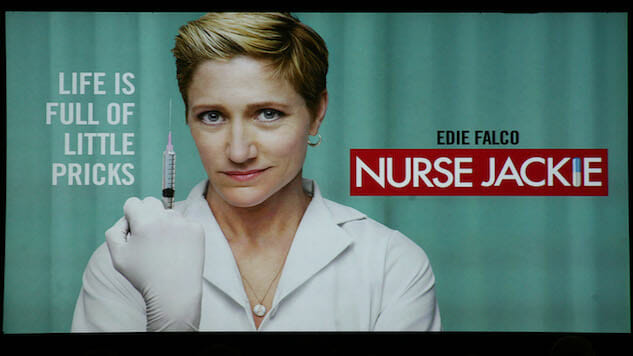What TV is Doing Right in Punishing Fictional Medical Professionals
Photo by Frederick M. Brown/Getty
If you’ve ever stayed overnight in a hospital, you know that the setting is far from the fictionalized versions on television: no plucky intern willing to scour the earth for a cure, no grumpy genius doctor capable of diagnosing even the rarest disease, and certainly no nurse who routinely tricks insurance companies to keep you from paying out of pocket.
For someone like me, who has felt as though the hospital was their version of Cheers at some point, the most gratifying moment in TV hospital situations and real ones is when medical professionals are held accountable for their mistakes and mistreatments. Which, let’s be honest, happens far too often. A study conducted by Johns Hopkins University showed that newer doctors weren’t relaying basic information to patients, such as their specialty or an explanation of a procedure. Even the simple act of sitting down to explain goes a long way in the comfort of a patient, making it easier for both parties to communicate.
Comparing my own situations to those on television has taught me that nothing is more valuable than a responsible medical professional. Even TV, known to blow things out of proportion or misrepresent many professions, gets that right. In fact, in that way, sometimes I wish my medical experiences were more like those depicted on TV.
When Doctors Are Dishonest
What it Looks Like on TV
On an episode of Grey’s Anatomy, Meredith Grey, current head of general surgery at Grey Sloan Memorial Hospital, switched a placebo out for the drug during a blind clinical trial to benefit the patient, who happened to be the chief of medicine’s wife. Co-worker Alex found out and spilled the beans to a senior doctor, and Meredith got fired by the hospital board. The clinical trial was shut down, and all the other patients who were desperately waiting for the drug weren’t allowed access.
What it’s Like in Real life
My gynecologist put me into a clinical trial for Endometriosis, but downplayed my Crohn’s Disease symptoms during the intake interview. I wasn’t sure why, but I went along with it because I trusted him, and my symptoms had been in remission for several months. Three months into the trial, after missing days of work for studies and completing daily surveys, I wound up in the hospital for a Crohn’s-related issue. After being discharged, I returned to my gynecologist’s office to find that I had been kicked out of the trial, right before the new drug would be tested. The director told me that no one was allowed with Crohn’s Disease, and was unsympathetic to the fact that I was unaware of this rule in the beginning. I was turned away from the office without any further assistance, and my pain management was swiftly exterminated. In the end, I was the one punished, yet, because I had to go through so many different hoops, the misinforming doctor probably got off scot-free.
When Doctors Almost Kill You
What it Looks Like on TV
On Nurse Jackie, Jackie is an Emergency Room nurse who is addicted to narcotic pain medication. In the sixth season, Jackie accidentally administers a fatal dose of insulin to a patient while high on OxyContin. Luckily, another nurse is close by to save the patient’s life, but just barely. Jackie is told she must submit to a drug test or lose her job, and ultimately is fired.
-

-

-

-

-

-

-

-

-

-

-

-

-

-

-

-

-

-

-

-

-

-

-

-

-

-

-

-

-

-

-

-

-

-

-

-

-

-

-

-








































